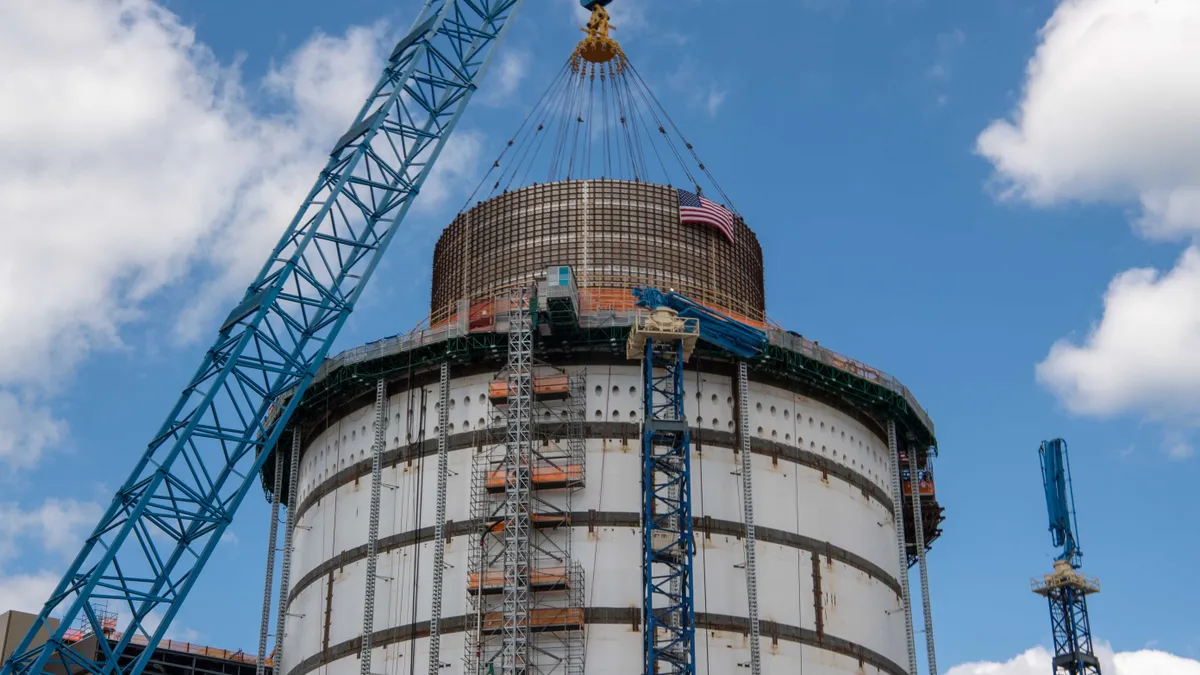The head of the Nuclear Regulatory Commission on Tuesday defended the agency’s efforts to update licensing regulations for advanced reactors and small modular reactors.
Critics say the licensing process is slow and the NRC staff’s draft proposed rule to update the process, at more than 1,200 pages, is excessively lengthy and overly complicated. Speaking about the rulemakiing process, Chair Christopher Hanson said at the NRC’s Regulatory Information Conference he applauds the staff “for adopting a uniquely iterative approach to its public outreach.”
“Let me be clear, we are in the middle of the rulemaking process, not at the end,” Hanson said.
The part 53 rulemaking effort reflects “true dialogue” with stakeholders and has involved two dozen public meetings since September 2020 to develop a risk-informed performance-based licensing framework, he said. The staff presented its proposal to the commission two weeks ago.
“Incorporating the varying, diverse and sometimes conflicting views shared during that iterative process, the staff developed two frameworks with general provisions governing both, to cover a range of possible advanced reactor technologies,” Hanson said.
The commission will review the proposed language and weigh in on key policy issues, he said.
“No doubt there'll be things that we agree with the staff on and others we don't. And we'll provide direction back to the staff as expeditiously as possible,” Hanson said.
Hanson’s upbeat message comes as nuclear energy enjoys rising support as an energy source that can help states and the federal government meet increasingly stringent greenhouse gas emissions limits. Technology, too, is being adapted to develop SMRs that are manufactured in modules and assembled on-site.
In addition, the $1.2 trillion Infrastructure Investment and Jobs Act includes $62 billion for clean energy projects, including nuclear. Spending is directed at advanced nuclear projects, preventing the premature retirement of nuclear plants and considering how nuclear power may produce hydrogen for other energy applications. The Inflation Reduction Act is providing further support for nuclear power.
“It’s a pretty significant shift, how much overwhelming interest there is,” Commissioner Jeff Baran said later in the forum, referring to revived attention to nuclear power.
Critics, however, say cost overruns and project delays undermine any positive views of nuclear power.
Hanson praised Georgia Power, a Southern Company subsidiary, for reaching initial criticality last week during the startup testing sequence of Vogtle Unit 3. “Not only is this important for Southern, it’s important for for us,” he said.
In January, Georgia Power delayed the start of Vogtle Unit 3 after detecting vibrations related to the cooling system piping.
Regarding other developments at the agency, Hanson cited its design certification in January of NuScale Power’s small modular reactor design, the first of its type in the U.S. to get NRC approval. Hanson also said the NRC staff reports it’s ahead of its 21-month review schedule for the Kairos Hermes test reactor in Oak Ridge, Tennessee, and is making progress on its 18-month schedule for the Abilene Christian University's research reactor.
And the NRC is collaborating with regulators in other countries on new design reviews, “geared toward more effective and efficient technical reviews” as several U.S. small module reactor and advanced reactor companies look to deploy reactors in more than one country at a time, Hanson said.















